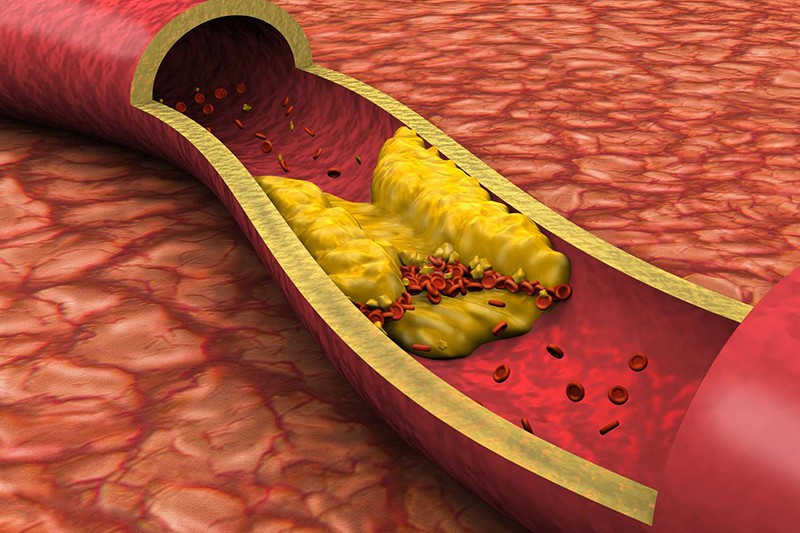
High blood pressure, or hypertension, is a silent but deadly condition that affects millions of people worldwide. Often asymptomatic, it quietly damages various organs and systems within the body over time, leading to severe health complications. Understanding these effects can highlight the importance of maintaining a healthy blood pressure and taking preventive measures. Here are the critical impacts of high blood pressure on the body:
Artery Damage
High blood pressure causes the arteries to become less elastic, leading to damage to the inner lining. This damage promotes the accumulation of plaque, a condition known as atherosclerosis, which narrows the arteries and restricts blood flow. This can lead to various cardiovascular problems and increase the risk of heart attacks and strokes.
Aneurysm
Chronic high blood pressure can weaken artery walls, leading to the formation of aneurysms—bulging, balloon-like areas in the vessel. These can rupture, causing life-threatening internal bleeding. Aneurysms can occur in any artery but are most commonly found in the aorta, the body's main artery.

Coronary Artery Disease (CAD)
High blood pressure accelerates the buildup of plaque in the coronary arteries, which supply blood to the heart muscle. This can cause coronary artery disease, characterized by reduced blood flow to the heart. CAD can result in chest pain (angina), heart attacks, and other complications.
Heart Attack
When an artery supplying the heart muscle becomes blocked, a heart attack occurs. High blood pressure contributes to this by damaging arteries and promoting plaque formation. The reduced blood flow to the heart muscle can cause severe damage and potentially be fatal if not treated promptly.
Peripheral Artery Disease (PAD)
High blood pressure can also lead to peripheral artery disease, where the arteries in the limbs, typically the legs, become narrowed or blocked. This can cause pain, cramping, and fatigue in the legs and increase the risk of infections and ulcers due to poor blood flow.
Heart Failure
The heart has to work harder to pump blood against the increased resistance caused by high blood pressure. Over time, this extra effort can weaken the heart muscle, leading to heart failure. This condition means the heart cannot pump blood effectively to meet the body's needs, resulting in fatigue, shortness of breath, and fluid retention.

Enlarged Heart
High blood pressure forces the heart to pump harder, which can cause the heart muscle to thicken and the chambers to enlarge. This condition, known as left ventricular hypertrophy, can impair the heart's ability to function properly and increase the risk of heart failure, arrhythmias, and sudden cardiac death.
Stroke
High blood pressure can damage and weaken the blood vessels in the brain, leading to a stroke. There are two main types of strokes: ischemic, caused by blocked blood vessels, and hemorrhagic, caused by a ruptured blood vessel. Both types can result in significant brain damage, disability, or death.

Dementia
Chronic high blood pressure can lead to vascular dementia, a type of dementia caused by reduced blood flow to the brain. This can result from damaged blood vessels and stroke, leading to memory loss, confusion, and difficulty with reasoning and problem-solving.
Kidney Failure
The kidneys filter waste from the blood, but high blood pressure can damage the blood vessels in the kidneys, reducing their ability to function effectively. This can lead to chronic kidney disease and eventually kidney failure, requiring dialysis or a kidney transplant.
Eye Problems
High blood pressure can damage the tiny blood vessels in the eyes, leading to a condition called hypertensive retinopathy. This can cause blurred vision, vision loss, and in severe cases, blindness. High blood pressure is also a risk factor for other eye conditions such as glaucoma and macular degeneration.
Bone Loss
High blood pressure has been linked to an increased rate of calcium excretion in the urine, which can lead to bone loss and an increased risk of osteoporosis, particularly in older adults.
Sleep Apnea
Sleep apnea is a condition where breathing repeatedly stops and starts during sleep. High blood pressure is both a cause and a consequence of sleep apnea. The disrupted sleep and oxygen deprivation associated with sleep apnea can worsen high blood pressure and increase the risk of cardiovascular complications.

How to Prevent High Blood Pressure
1. Healthy Diet: Adopt a balanced diet rich in fruits, vegetables, whole grains, and lean proteins. The DASH (Dietary Approaches to Stop Hypertension) diet is particularly effective in reducing blood pressure.
2. Regular Exercise: Engage in regular physical activity, such as walking, jogging, cycling, or swimming. Aim for at least 150 minutes of moderate-intensity exercise per week.
3. Maintain a Healthy Weight: Achieving and maintaining a healthy weight can significantly reduce blood pressure. Even a small amount of weight loss can have a positive impact.
4. Limit Salt Intake: Reducing salt intake can help lower blood pressure. Avoid adding extra salt to meals and choose low-sodium alternatives when possible.
5. Limit Alcohol: Drink alcohol in moderation. For men, this means up to two drinks per day, and for women, one drink per day.
6. Avoid Tobacco: Smoking increases blood pressure and damages blood vessels. Quitting smoking can improve overall cardiovascular health.
7. Manage Stress: Chronic stress can contribute to high blood pressure. Practice stress-reducing techniques such as meditation, deep breathing exercises, yoga, or spending time in nature.
8. Monitor Blood Pressure: Regularly check your blood pressure, especially if you have a family history of hypertension or other risk factors. Early detection can help you manage the condition more effectively.
9. Medication: If lifestyle changes are not enough to control your blood pressure, your doctor may prescribe medication. It's essential to take medication as directed and to have regular follow-ups to monitor your condition.
By understanding the potential consequences of high blood pressure and taking proactive steps to prevent and manage it, you can significantly protect your health. Implementing lifestyle changes and, if necessary, using medication can help you maintain a healthy blood pressure, reducing the risk of severe complications and improving your overall quality of life. Taking action now can lead to a healthier future and help you avoid the dangerous effects of hypertension.
Subscribe means that you have read and agree to the Privacy Policy.
Subscribe means that you have read and agree to the Privacy Policy.
Copyright © Shenzhen Pango Medical Electronics Co.,Ltd, Ltd. All Rights Reserved.